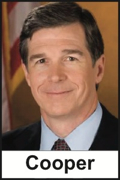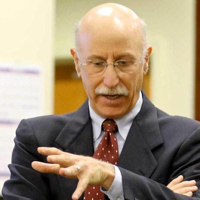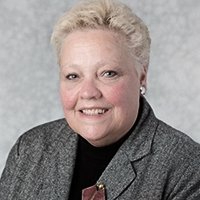Rascals case in brief
In the beginning, in 1989, more than 90 children at the Little Rascals Day Care Center in Edenton, North Carolina, accused a total of 20 adults with 429 instances of sexual abuse over a three-year period. It may have all begun with one parent’s complaint about punishment given her child.
Among the alleged perpetrators: the sheriff and mayor. But prosecutors would charge only Robin Byrum, Darlene Harris, Elizabeth “Betsy” Kelly, Robert “Bob” Kelly, Willard Scott Privott, Shelley Stone and Dawn Wilson – the Edenton 7.
Along with sodomy and beatings, allegations included a baby killed with a handgun, a child being hung upside down from a tree and being set on fire and countless other fantastic incidents involving spaceships, hot air balloons, pirate ships and trained sharks.
By the time prosecutors dropped the last charges in 1997, Little Rascals had become North Carolina’s longest and most costly criminal trial. Prosecutors kept defendants jailed in hopes at least one would turn against their supposed co-conspirators. Remarkably, none did. Another shameful record: Five defendants had to wait longer to face their accusers in court than anyone else in North Carolina history.
Between 1991 and 1997, Ofra Bikel produced three extraordinary episodes on the Little Rascals case for the PBS series “Frontline.” Although “Innocence Lost” did not deter prosecutors, it exposed their tactics and fostered nationwide skepticism and dismay.
With each passing year, the absurdity of the Little Rascals charges has become more obvious. But no admission of error has ever come from prosecutors, police, interviewers or parents. This site is devoted to the issues raised by this case.
On Facebook
Click for earlier Facebook posts archived on this site
Click to go to
Today’s random selection from the Little Rascals Day Care archives….
Click for earlier Facebook posts archived on this site
Click to go to
Today’s random selection from the Little Rascals Day Care archives….
Potent weapon for N.C. DAs: court calendar
March 20, 2013
“Unlike their counterparts in every other state, North Carolina prosecutors have control over criminal court calendars.
“In the Little Rascals case, prosecutors used their trial-scheduling authority to let defendants wait for years before proceeding with their cases. They have held the power of the calendar over (Bob) Kelly for a decade without having to account to any other government authority.”
– From “Little Rascals Day Care case still not over” in the Raleigh News & Observer (Jan. 4, 1999)
Almost nine more months would pass before prosecutors dropped the last charges against Bob Kelly.
Despite efforts at reform, district attorneys in North Carolina still maintain near total control over court calendars.
‘Cooper stopped far short of apologizing….’
 Aug. 26, 2013
Aug. 26, 2013
“Attorney General Roy Cooper stopped far short of apologizing to (Greg Taylor and Floyd Brown). He said that the SBI had better investigative practices now and that ‘It was in the best interest of the state to settle these cases.’
“And maybe in the best interest of justice, too?
“These two men lost their youths thanks to agents of the SBI. That is an outrage for which they can never be adequately compensated. State officials have been encouraged to offer profuse apologies, and that is not unreasonable, though it’s a little late for it now….
“But let no one involved in prosecuting these two men believe that the debt for their ‘mistakes’ is paid in full.”
– From “Two former prisoners’ lives, valued,” editorial in the News & Observer (Aug. 15, 2013)
As compensation for their flagrantly corrupted prosecution, Taylor received about $4.5 million from the state, Brown about $8 million. Attorney General Cooper seems to find such an outlay easier to swallow than offering an apology – providing yet another example of the “Mistakes Were Made (But Not By Me)” approach to accountability.
By contrast, in 2007 the Duke lacrosse case moved Cooper to give the defendants a “statement of innocence” and to at least brush up against remorse:
“In the rush to condemn, a community and a state lost the ability to see clearly…. I think a lot of people owe a lot of apologies to a lot of people.”
But in 2009, after yet another wrongful conviction settlement – this one for $3.9 million – Cooper declined to give murder defendant Alan Gell a statement of innocence. ”The Duke case was a clear case, very unusual,” he explained. “There was no crime committed….”
“No crime committed”? Why, I know another “clear case, very unusual” that precisely meets that standard!
APSAC official acknowledges ‘granddaddy of our “oops!”’

heraldnet.com
Paul J. Stern
Oct. 9, 2016
Paul J. Stern, recently retired prosecutor in Snohomish County, Wash., has long served the American Professional Society on the Abuse of Children as a board member and as an instructor on forensic interviewing.
At the least his June presentation to a large audience of APSAC conventioneers promised to be provocative: “What Practices Are We Engaging in Now That 15 Years From Now We’re Going to Look Back on and Think ‘What in the World Were We Thinking?’ ”
But the title paled in comparison with what Stern went on to say about the rap sheet of this ostensibly professional organization – its serial gullibility about “satanic ritual abuse,” “multiple personality disorder” and various other “misguided ideas.”
Click below to watch a video of Paul J. Stern’s entire talk.
He rambles, and the video suffers from not showing his accompanying PowerPoint. But the case he makes is powerful, unmistakable and surely discomfiting to audience members such as President Emeritus for Life Jon Conte and Board Member at Large Kathleen Coulborn Faller.
“I may irritate a few of you from time to time,” he noted as he began.
Some excerpts, edited for clarity:
- “I want to start by going back to the ’60s, the ’80s, the things we cared about then…. Some of the things we’ve grown up from in this field…. What were we thinking back then?… Oy! (clutches head, steps away from lectern)….What the hell were we thinking?….”
- “Let’s get the granddaddy of our ‘Oops!’ out of the way: ‘satanic ritual abuse.’ Individuals and agencies that weren’t skeptical failed to recognize that all of the iceberg that existed was the tip….And that melted pretty quickly…”
- “This matters [because] prosecutors sentenced people to prison based on good, scientific evidence that turned out not to be accurate.”
- “Why does all this happen? Child abuse is both an advocacy field and a political field. We’ve got to energize the base, energize the policymakers, get their attention…. Easy answers manage anxiety, and they get attention. ‘Kids never lie!’ ‘Believe the children!’ Great slogans, great bumper stickers, but it’s a little more complicated than that….”
Prosecutor Stern continued with a call for APSAC to focus on “evidence-based decision-making,” but I remained stunned by his acknowledgement of decades of APSAC’s cocky, costly wrongheadedness. Yes, innocent defendants such as Bob Kelly did indeed go to prison based on unfounded theories and corrupt interview practices.
Thank you, Mr. Stern, for your candor. Will this moment turn out to be an aberration – or is APSAC finally ready to make amends to the real victims of its “satanic ritual abuse” mythology?
![]()
Expert on day-care panic adds papers to Duke Law archive

DeYoung
Jan. 11, 2019
The Little Rascals Day Care Case archive at Duke Law School is about to get some impressive company. Mary deYoung, perhaps the most prolific researcher and chronicler of the “satanic ritual abuse” era, has agreed to place her own voluminous papers at Duke.
The author of both “The Day Care Ritual Abuse Moral Panic” (2004) and “The Ritual Abuse Controversy: An Annotated Bibliography” (2002), she is now emerita professor of sociology at Grand Valley State University. I asked Dr. deYoung to describe what she will be sending Duke’s way….
“My papers include 40 binders on American, European and Australasian cases. For many of the cases, I traveled to the site of the moral panic and collected local material that is not generally available by internet searches. I also have a file box of ephemera – symptom lists, descriptions of rituals, etc. – that were widely circulated at the endless training sessions that recruited so many social workers, police officers, medical and legal professionals to the idea that day care providers were engaged in a satanic conspiracy to abuse children. I have a few books, written by apologists, that probably should have been burned long ago, but they are testimony to the mainstreaming of these ridiculous ideas….
“The prospect that lessons can be learned from this dark decade is very satisfying…. While day care centers are no longer the site of the panic, the ridiculous assertions, unfounded complaints and pseudoscience that resulted in so many miscarriages of justice still occur in recovered memory and other types of cases around the Western world.”
![]()











0 CommentsComment on Facebook